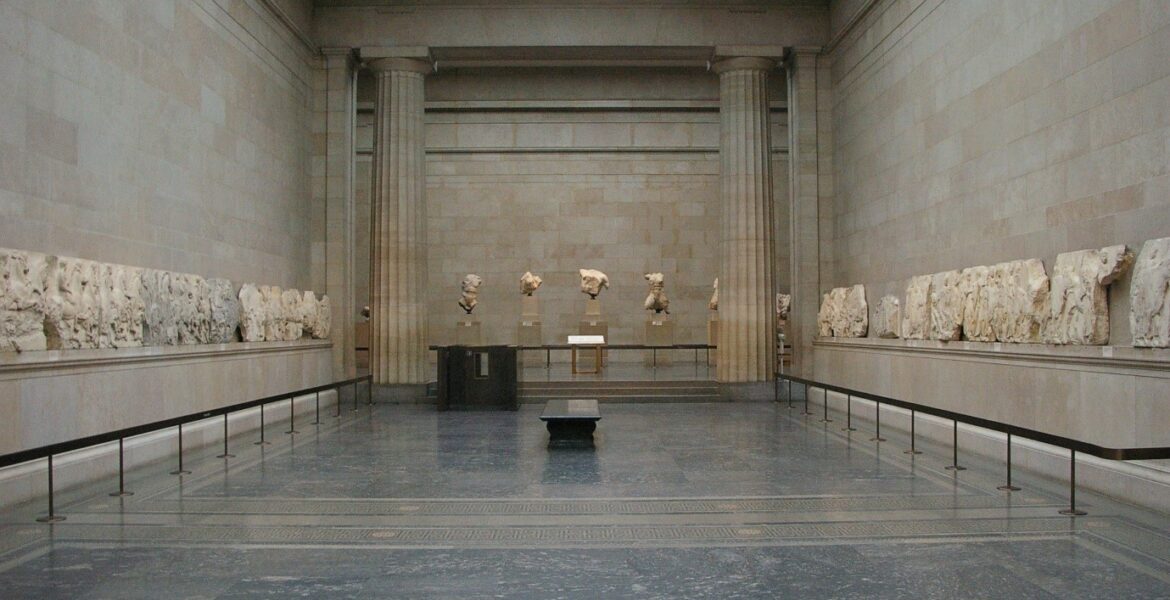Following the recent meeting of the UNESCO Intergovernmental Committee on the Return of Cultural Property, Greece and the United Kingdom have agreed to hold talks on the fate of the Parthenon Sculptures. But recent history suggests that those discussions – if they are indeed to take place – may ultimately prove futile.
Why the pessimism? What does history teach us?
The UNESCO recommendation read promisingly:
“The Committee takes note of the fact that Greece intends to open bilateral negotiations with the United Kingdom for the return of the marbles of the Parthenon and expresses its satisfaction at the agreement of the Greek authorities to comply fully with the procedures for bilateral negotiation decided by it.”
Naturally, Greece is heartened by such statements of support in its quest for the return of the Parthenon Sculptures from the British Museum. The only slight problem is that this recommendation was in fact issued at the third session of the UNESCO Intergovernmental Commission for the Return of Cultural Property to the Countries of Origin (ICRPCP) held in Istanbul on 12 May 1983 - almost four decades ago.
And basically every two or so years since then.
On 20 May 2022, at the recently-concluded 23rd session of the UNESCO Committee, the latest recommendation, which was jointly drafted by the UK and Greek representatives and adopted unanimously by delegates, once again called upon Greece and the United Kingdom to intensify their efforts with a view to reaching a satisfactory settlement.
The Recommendation 23.COM/6 reads as follows:
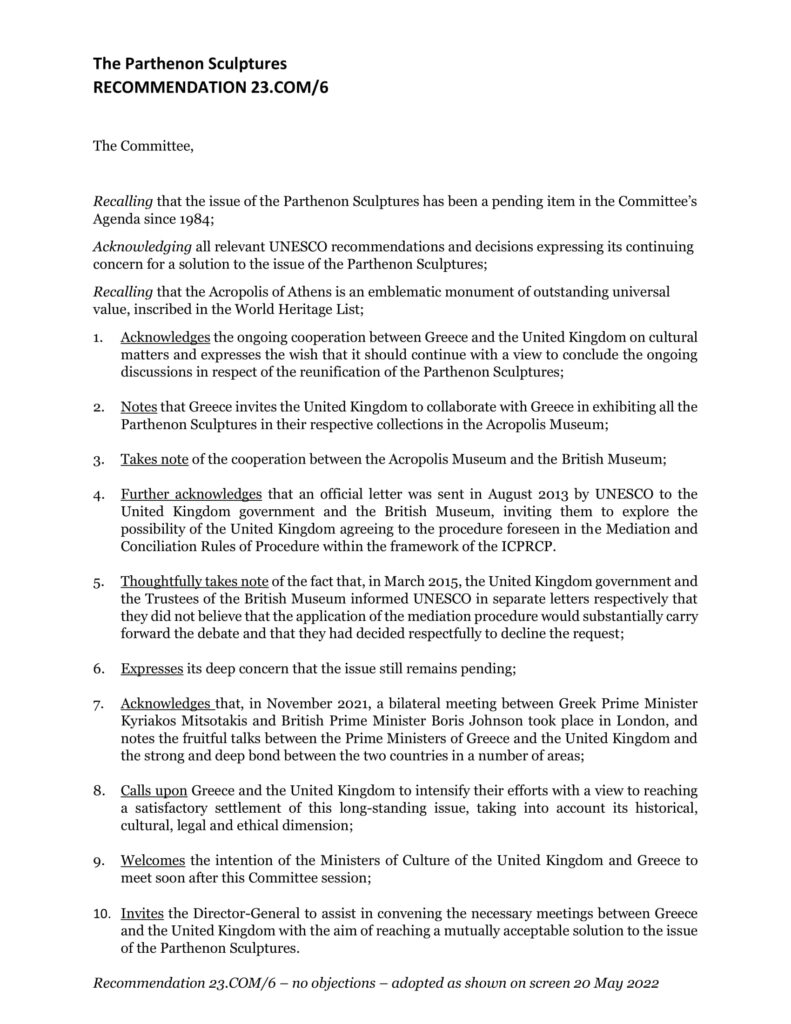
But it was preceded by a most significant development in September 2021 at the postponed 22nd Session of ICRPCP when the UNESCO Committee actually issued a decision acknowledging that the obligation to return the Parthenon Sculptures lay squarely on the UK Government and calling upon the UK to “reconsider its stand and proceed to a bona fide dialogue with Greece”.
In the days leading up to the latest meeting of the ICRPCP, the UK surprised many observers by sending an invitation from the Department for Digital, Culture, Media and Sport (DCMS) for the UK and Greek Culture Ministers to meet for discussions. That was immediately accepted by the Greek side and it was duly noted that talks were to take place soon after the Committee session.

As the Greek Minister of Culture and Sports Dr Lina Mendoni said at the time:
“Greece welcomes the recommendation of the 23rd Intergovernmental Committee of UNESCO and is ready to engage in an honest and good faith dialogue with the United Kingdom, taking into account the historical, cultural, legal and ethical dimensions of the issue”.
Interestingly, when the Greek Culture Minister was asked the other day if a date had been fixed, she answered that prior to the Intergovernmental Committee meeting it was not possible to fix a mutually agreed date. Dr Mendoni added, however, that dates will be sought “through diplomatic channels”.
Whilst hope always springs eternal, the early signs have cast somewhat of a pall over the realistic prospect of any constructive dialogue being held after years of obfuscation and doublespeak from the British side.
The Greek case for reunification
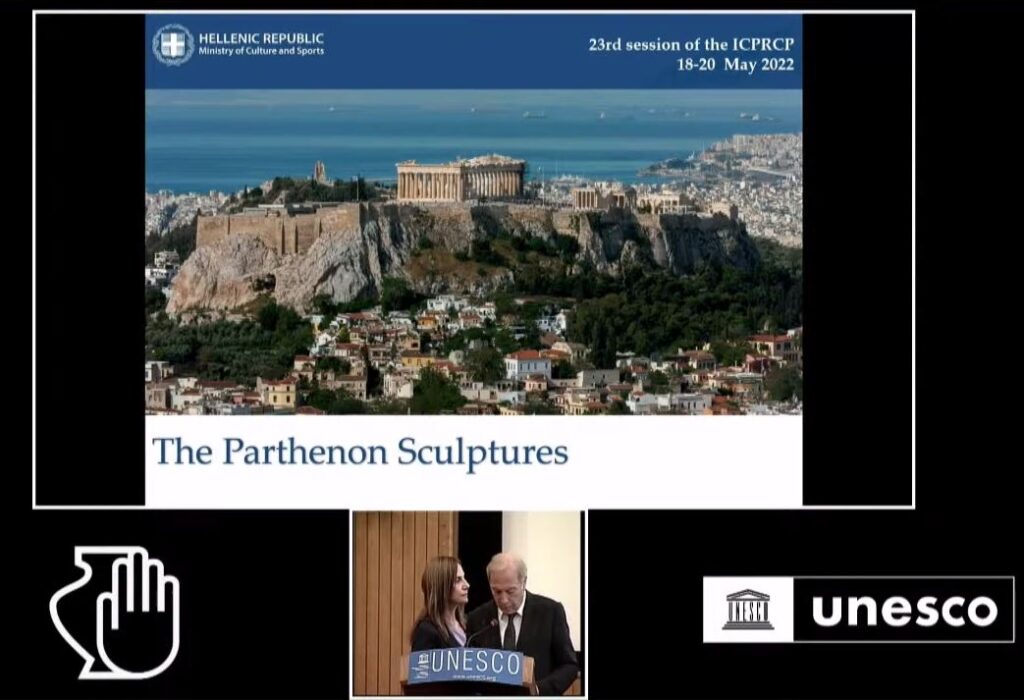
The Greek presentation to UNESCO – featuring the Director-General of the Acropolis Museum, Professor Nikolaos Stampolidis and Senior Legal Advisor at the Ministry for Foreign Affairs of Greece, Artemis Papathanassiou – was impressive. The Greek side stressed that the Parthenon atop the Acropolis is an emblematic monument of outstanding universal value and the Parthenon sculptures are an integral part of that unique architectural monument. Lord Elgin clearly abused his diplomatic status as the British Ambassador to the Ottoman Empire at the turn of the nineteenth century to strip the temple of much of its statuary and illegally remove them from Athens.

Dr Papathanassiou also reminded the delegates that the issue of the Parthenon Sculptures has been a pending item on the Committee’s Agenda for almost forty years in search of a resolution. The lack of progress has been particularly highlighted by the simultaneous decisions of both UK Government and the British Museum in 2015 to decline UNESCO’s offer of mediation made two years earlier.
The UK (predictable) response
Although it was the DCMS that had made the initial approach for the culture ministers of both Greece and the UK to meet, not on the sidelines of UNESCO but at a proper meeting at ministerial level, the UK’s representative at UNESCO, Helen Whitehouse, who is the Deputy Director, Museums and Cultural Property at the DCMS, rose in response to the Greek delegation’s submission and once again restated the long-held position of the British Government, namely, that the sculptures were “lawfully acquired” by Lord Elgin and that it is a matter for the British Museum as the UK Government “does not own the Parthenon Sculptures”. She pointedly added that whilst the British Museum is committed to “respectful collaboration” it is not for the UK government to enter into discussions with the Greek government on the fate of the sculptures.
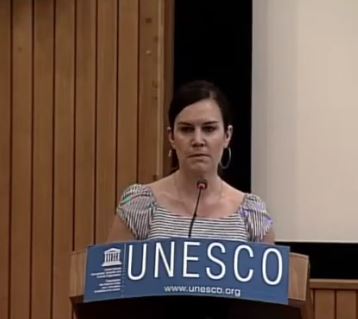
Ms Whitehouse later stated, in the face of comments by a number of delegates and observers who expressed incredulity at the length of time that has passed, that the UK acknowledges that the issue has been on the agenda of the UNESCO committee for nearly 40 years and “we love to see some kind of resolve for this”.
The DCMS Deputy Director initially claimed that the decision adopted by the UNESCO Committee in Sept 2021 – which expressed its disdain for the lack of progress and acknowledged the legitimate claims of Greece - was an “abuse of process” because it was introduced without warning or debate or consensus and it contained factual inconsistencies. A number of delegates immediately took issue with the UK representative and pointed out that there had been unanimous consensus. Some were also incredulous that the UK envoy was seeking to challenge a decision that, as Dr Papathanassiou of Greece pointed out, had also been adopted by UNESCO at its General Conference in November 2021. Whitehouse then retreated and said she wanted to “draw a line” and move on with the debate.
But the real issue is whether the British have any real desire to engage in meaningful negotiations.
A "creative act"
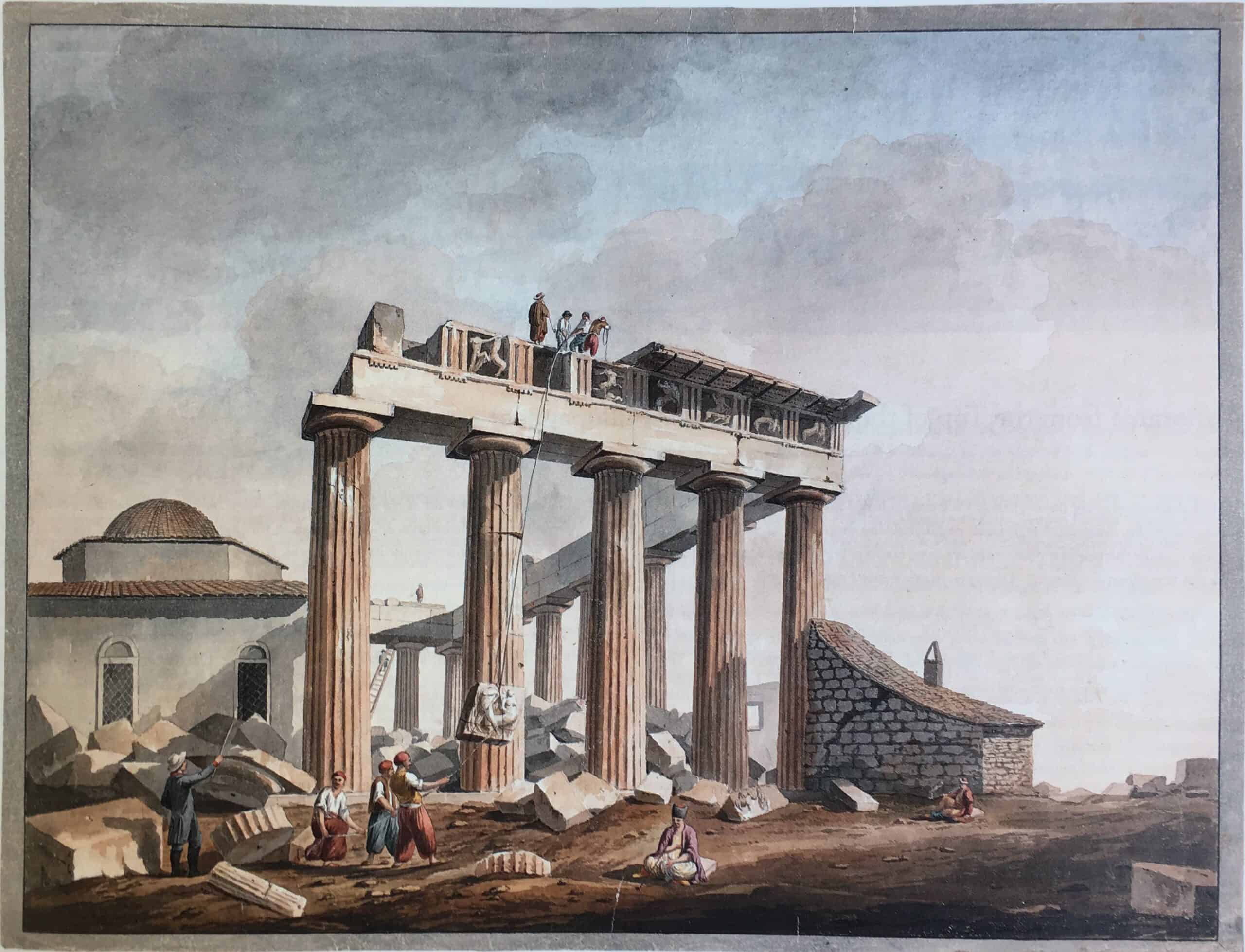
The answer came from the British Museum’s Deputy Director, Jonathan Williams. In a tone recalling the remarks of the current director of the museum, Dr Hartwig Fisher in 2020, when he infamously declared that Elgin’s actions in dismantling the Parthenon were a “creative act”, Williams appeared to quash the prospects of a genuine dialogue and at the same time inflamed the debate by claiming that “much of the frieze was in fact removed from the rubble around the Parthenon” and that the “objects” were not all hacked from the building as claimed.
The intervention by Williams was no surprise to seasoned observers. The Deputy Director of the British Museum has in the past been critical of the “legalistic perspective on culture” taken on by the principal UN agencies engaged with cultural matters in UNESCO. Williams has written that he does not like the “lawyerly gaze on culture” and his bombastic statements during the UK side’s presentation in Paris were intended to deflect attention from the core message delivered by the UNESCO Committee to the United Kingdom in September 2021 and again in May 2022, namely, that it’s time for genuine dialogue and not a re-interpretation of Elgin’s ‘interventions’ on and around the Parthenon.
Within a matter of hours, as reported by the London-based correspondent for the Greek newspaper Ta Nea, Yannis Andritsopoulos, the DCMS issued the following statement:
“The UK has a longstanding position on this issue that has not changed - the Parthenon Sculptures were acquired legally in accordance with the law at the time. The British Museum operates independently of the government and free from political interference. All decisions relating to collections are taken by the Museum's trustees. There has been no change to the UK's position on the Parthenon Sculptures and no change to the nature of our formal engagement with Greece on the issue."
And then, as if on cue, the British Museum also issued a statement:
“The British Museum can confirm that no new talks with the Greek government have taken place or are planned regarding the repatriation of the Parthenon Sculptures."
The DCMS – in a classic case of doublespeak - confirmed that a meeting between British officials and the Greek minister of culture will take place but denied that the UK government has agreed to formal talks about the Parthenon Sculptures. And as if this needed to be repeated, the statement concluded:
“While we are always happy to discuss matters of cultural co-operation with our Greek colleagues, the Parthenon Sculptures are owned by the British Museum, which operates independently of government. This is therefore a matter for the museum’s trustees. The UK’s longstanding position on this matter has not changed.”
Or, perhaps, the author Lewis Carroll in his satirical “Through the Looking-Glass” had this scenario in mind when his mythical character, Humpty Dumpty, perched on a wall before his great fall, disdainfully declares:
“When I use a word it means just what I choose it to mean - neither more nor less.”
Who is Lord Parkinson and what is likely to happen?
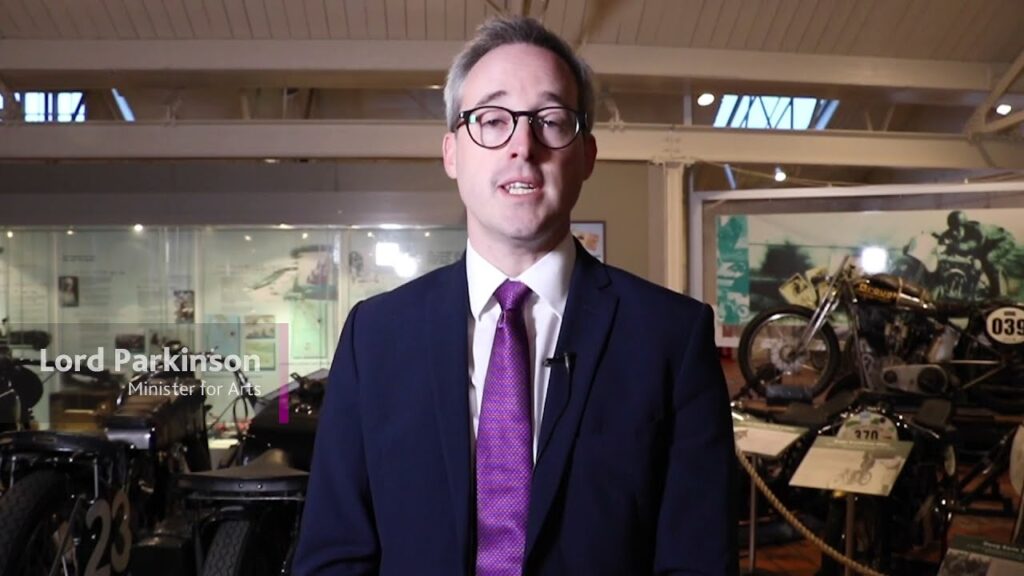
Lord Parkinson of Whitley Bay is officially the Parliamentary Under-Secretary of State for Arts in the UK and is responsible for the arts and museums. He is the lowest-ranked minister in the ministerial pecking order at the DCMS which is headed by the Secretary of State, Nadine Dorries, a true Conservative politician steeped in the 'retain and explain' tradition when it comes to justifying Great Britain’s imperial legacy.
So questions need to be asked.
Will the UK Arts Minister sit down and have constructive talks with his Greek counterpart?
How does he reconcile the invitation sent to the Greeks with claims by the British Museum that it is committed to “respectful collaboration” but at the same time declaring that it is not for the UK government to enter into discussions with its Greek counterparts on the fate of the sculptures?
Does the Department for Digital, Culture, Media and Sport take its riding instructions from Bloomsbury?
And how will Greece respond?
After four decades at UNESCO, and countless recommendations and false promises, the hope that there will finally be a genuine dialogue between Athens and London at ministerial level and conducted in good faith to explore the resolution of the Parthenon Sculptures, appears to be as faint as ever.
As Winston Churchill famously declared in a 1948 speech to the British House of Commons when he paraphrased the Spanish philosopher George Santayana, those who fail to learn from history are condemned to repeat it.
Mr George Vardas is the co-Vice President of The Australian Parthenon Association and co-Founder of the Acropolis Research Group

